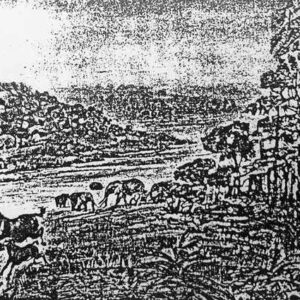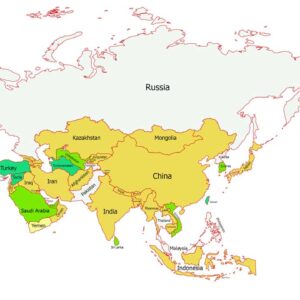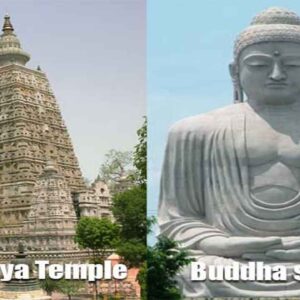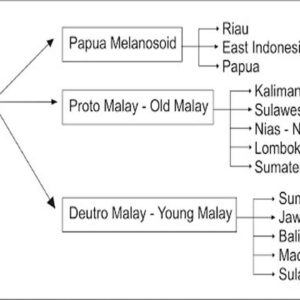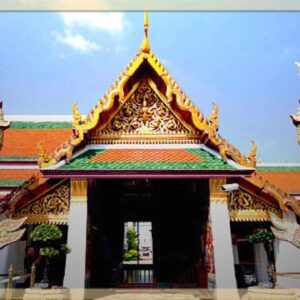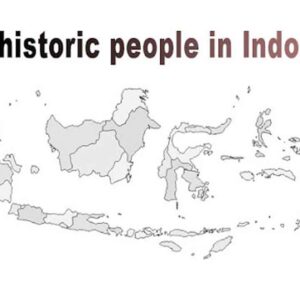Around the 15th century, there were several kingdoms in South Sulawesi. Gowa and Tallo kingdoms were the kingdoms of Makasar people and known as Makasar Kingdoms, whereas Luwu, Bone, Soppang, Wajo, Tanette, and Barru were the kingdoms of Bugis people.
Each kingdom kept trying to conquer the other. The Luwu Kingdom began to expand its territory to other areas, such as the Sidenreng Kingdom. The expansion was continued to Bone Kingdom. However, it turned out that Luwu was not strong enough to face Bone.
The Gowa-Tallo Kingdom also adopted an expansionistic policy. Under this policy, Siang, Bone, Suppa, Sawitto, and some other small kingdoms were forced to submit to Gowa-Tallo. But in 1528 Bone revived the resistance against Gowa Tallo.
Bone formed an alliance with Wajo and Soppeng Kingdoms and the alliance was called Tellumpocco (three power) and declared at Bunne Village. In the alliance, Bone was recognized as the eldest brother, Wajo the middle brother, and Soppeng the youngest brother. The purpose of forming ‘Tellumpocco’ was to stop the territorial expansion of the Gowa-Tallo Kingdom.
Since the 16th century, Muslim merchants had come to South Sulawesi. Some ulamas from West Sumatra such as Datok ri Bandang, Datok Sulaeman, and Datok ri Tiro also arrived in South Sulawesi to spread Islam.
In 1605, two kings of the twin kingdoms of Gowa and Tallo converted to Islam. The two kings were Daeng Manrabia from Gowa who then changed his name to Sultan Alaudin and Karang Mataoya from Tallo who changed his name to Sultan Abdullah and used the title Awalul Islam. Sultan Abdullah was not only the king of Tallo but also the senior minister of Gowa.
During the reign of Sultan Alauddin and Sultan Abdullah, Gowa-Tallo Kingdoms worked hard to expand their territory, and the two kings also actively encouraged their people to convert to Islam.
Read also: The development of Islamic in the Samudera Pasai Kingdom
Sultan Alauddin and Sultan Abdullah’s efforts to expand the territory made Gowa-Tallo larger and comprise not only Sulawesi but also other areas in East Indonesia such as East Nusa Tenggara. Sangir and Talaud islands, Kutai, and even Maroge (Australia). As a result, Gowa-Tallo grew into a large kingdom.
The expansive efforts of Gowa-Tallo were opposed by the Tellumpocco alliance. At first, the alliance very actively hindered Gowa-Tallo’s goal to extend the influence of Islam. But in 1609 Soppeng submitted, Wajo followed in 1610, and Bone also submitted in 1611.
So finally the people of these Bugis kingdoms professed Islam. Though the three kingdoms had been beaten. Gowa-Tallo allowed them to maintain the existence of the Tellumpocco alliance.
After defeating Tellumpocco, Gowa-Tallo Kingdom (Makasar Kingdom) flourished, especially in trade. The fast development in trade was due to the following factors.
- Many of the merchants who used to do trade with Malacca moved their activities to Makasar after the kingdom was seized in 1511.
- People of Makasar and Bugis were well-known as excellent and courageous sailors, so they were able to keep the security of the waters of Nusantara navigation lines.
- The availability of spices taken from Maluku and coconut which was produced in Sulawesi.
Makasar Sultanate was located at a strategic point on Malacca-Maluku navugation line. To regulate and secure the trade and navigation in its territory, Makasar issued a trade law which was called ‘Ade Allopiloping Bacanna Pabalus’.
This law was contained in the book titled ‘Lontera Amanna Coppa’. The glory of Makasar was reached during the reign of Sultan Muhammad Said (1639-1653) and Sultan Hasanuddin (1653-1669). The two kings had led Makasar to be a fast-developing trade region. In addition, Makasar’s control also reached Solor Island in Nusa Tenggara.
Read also: The early development process of Islam in Indonesia
